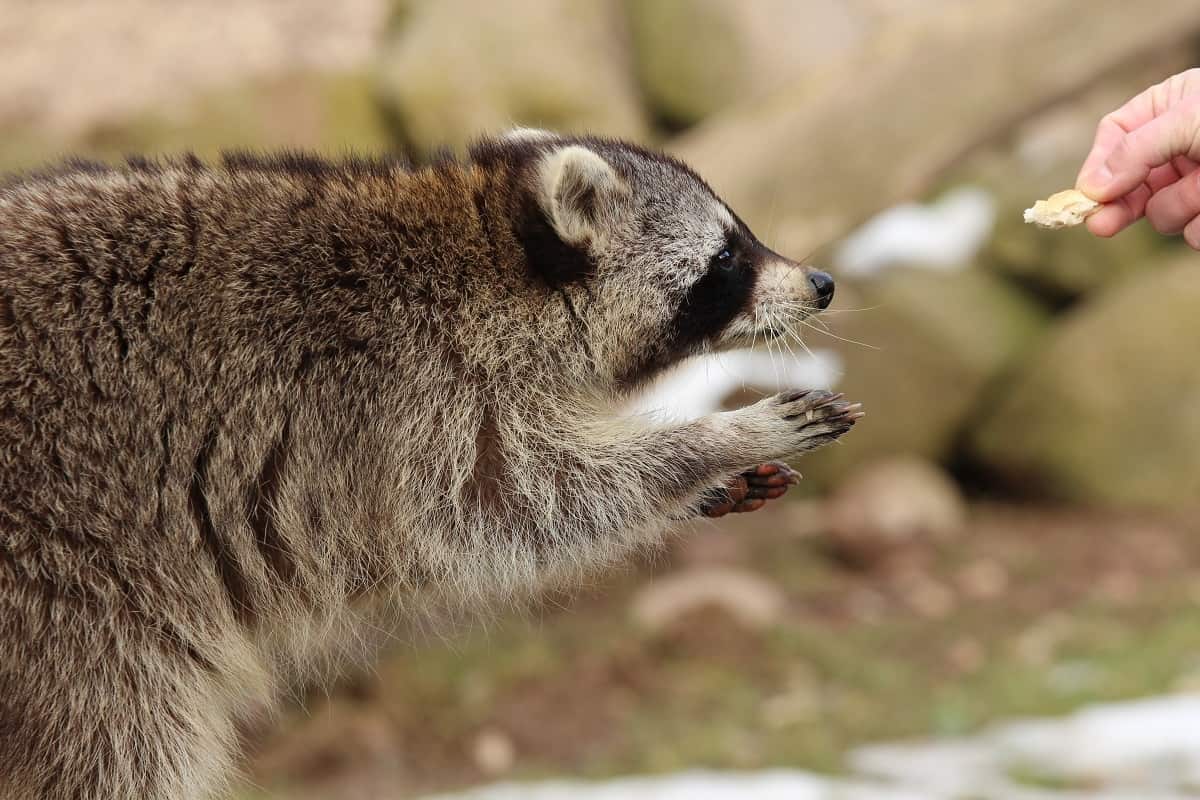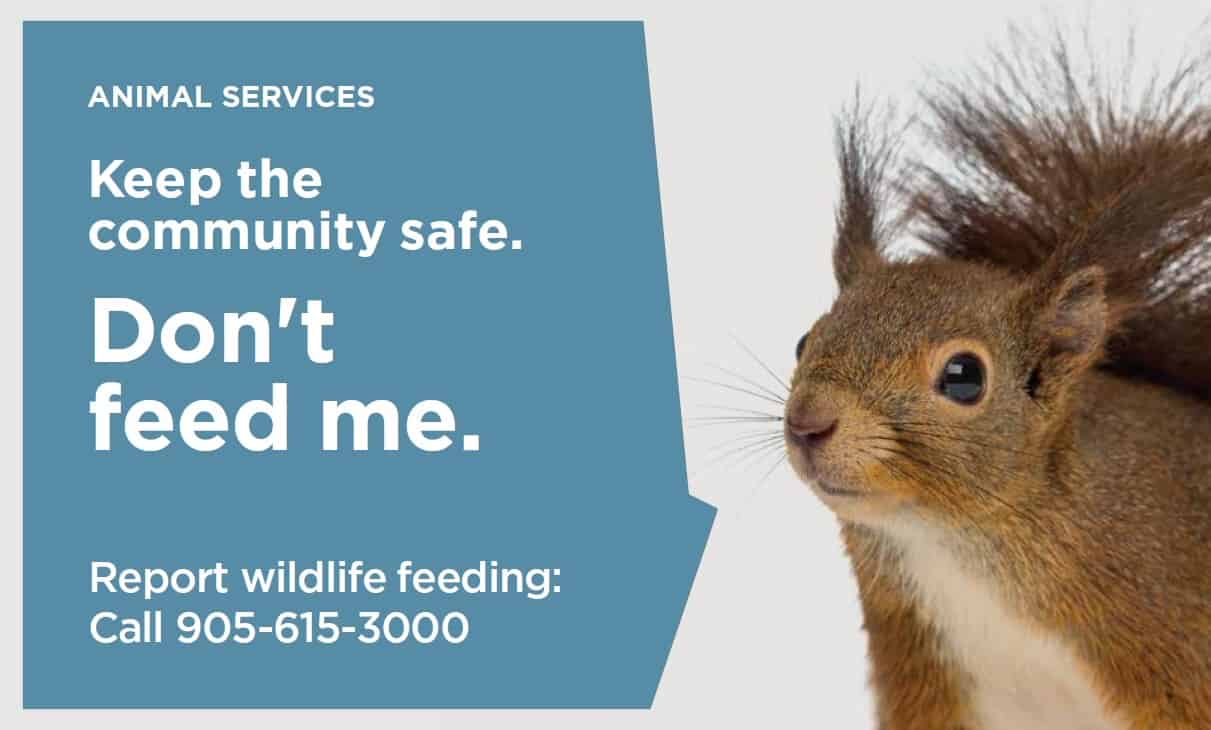Do not feed these animals in Mississauga, residents told
Published April 7, 2022 at 1:11 pm

Mississauga officials are pleading with the public to not feed wild animals in the city, noting such activity endangers the animals as well as people and their pets.
The City of Mississauga says it has received numerous reports that residents are feeding wildlife in various parts of the city.
While Mississauga Animal Services officers continue to educate residents as they patrol areas of the city where intentional feeding is a concern, they also warn people that hefty fines are a possibility.
Under Mississauga’s Animal Care and Control Bylaw, feeding wildlife–including leaving food out, food waste and disposing of food in natural areas–is illegal and carries a minimum $300 fine.
Though coyotes grab most of the media headlines, City officials say the list of wild animals people should not be feeding also includes everything from ducks and other birds to foxes, raccoons, squirrels and chipmunks.
“While it might seem harmless to feed the ducks or let raccoons scavenge through a green bin, it’s having a significant impact on the community as wild animals are growing a tolerance for approaching humans seeking food,” a City official said in an email statement. “Under no circumstances is feeding wildlife recommended in Mississauga.

“Ongoing feeding of wildlife has already started to impact communities, as we’ve seen with an uptick in recent coyote sightings,” the official continued. “We’re working to remind residents how important it is to not feed wildlife in any situation.”
The City says the bottom line is that feeding wild animals, both smaller and larger ones, does much more harm than good.
“You might think you’re helping a poor little animal find food, but you’re just adding to a bigger problem. More and more wildlife species like robins, squirrels and chipmunks are becoming dependent on humans for food,” Mississauga officials say.
“If you’re feeding wild animals food like bread, nuts or leftovers, chances are someone else is, too. It only conditions these animals to rely on humans to provide them food. As a consequence, wildlife will start to worry less about finding their own food and become more dependent on humans.”
The City cautions that feeding wildlife can cause the animals to:
- become dependent on artificial food sources and stop searching for food naturally. This is not healthy and can lead to illness or disease
- lose their natural fear of humans and pets, and become more likely to approach you
- gather in large numbers when food is easily available, leading to more diseases and it may destroy natural habitats
Animal Services says wild animals like raccoons, birds, foxes and coyotes should always look for food and shelter on their own. This is important, they note, since it helps wildlife develop and maintain their natural adaptation skills for long-term survival.
“It’s also important so that wildlife aren’t scavenging properties for food or becoming aggressive, expecting food when they come across humans,” the City says.
City officials say the feeding of wild animals also negatively impacts people by:
- attracting other unwanted pests such as rats and mice, which can attract larger predators like coyotes that can prey on neighbourhood pets
- increasing nuisance wildlife activity and unsanitary conditions, such as raccoons taking up residence in attics, skunks burrowing beneath sheds or bird droppings that can damage property and pose a health risk
- inviting the animals into urban areas and putting them in danger of being hit by vehicles and causing accidents, resulting in property damage, injury or death
- posing a health risk when animals get too close to you if they’re carrying diseases like rabies






